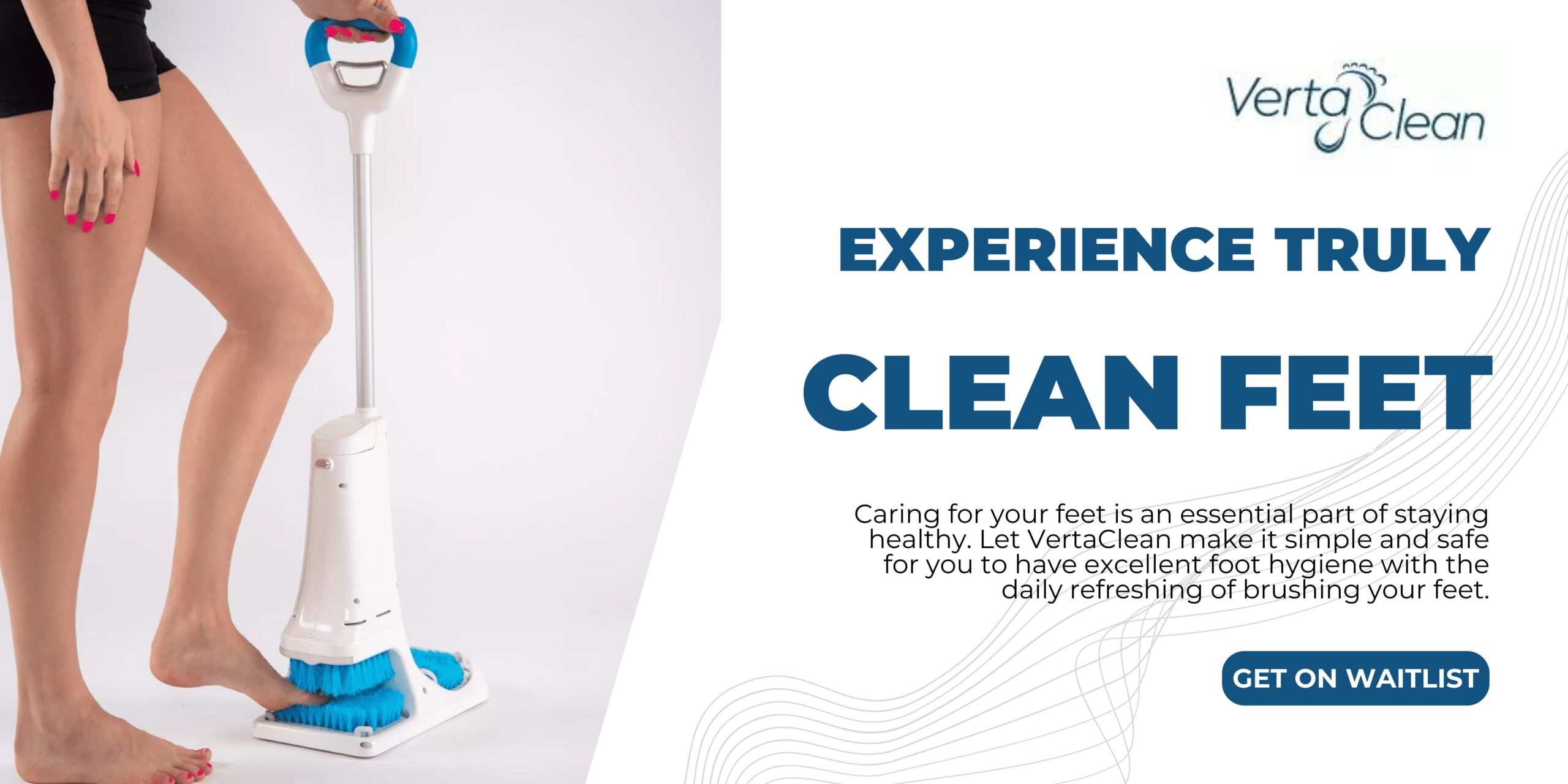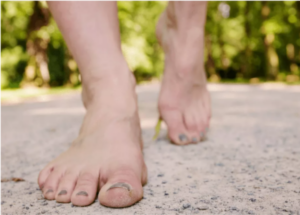Clean feet are not just a matter of aesthetics; they are a cornerstone of good health and personal hygiene. In a world teeming with microbes, keeping one’s feet clean is essential to prevent a variety of infections that can affect our overall well-being. This article delves into the significance of maintaining foot cleanliness and the effective strategies to prevent infections that could otherwise hamper our daily activities and health.
The first subtopic explores the Importance of Personal Hygiene, highlighting how routine cleaning of feet fits into the broader context of a healthy lifestyle. Good hygiene practices are a fundamental defense against many common pathogens, and foot care is often overlooked in the personal hygiene regimen despite being just as crucial as handwashing or dental care.
Next, we will discuss Footwear and Protective Gear, examining how the right choices can shield our feet from environmental contaminants and injuries that can open the door to infections. From the materials and design of our shoes to the benefits of using protective gear in communal spaces, this section will provide insights into how our choices in footwear contribute to foot health.
In our third subtopic, Regular Foot Cleaning Practices, we will outline the best practices for washing and maintaining feet. This includes the frequency and techniques of foot washing, the importance of drying feet thoroughly, and the role of exfoliation and nail care in preventing fungal and bacterial infections.
The fourth subtopic, Prevention and Treatment of Common Foot Infections, will delve into the types of infections that commonly afflict the feet, such as athlete’s foot and toenail fungus. We will discuss how proactive measures can prevent these conditions and the treatment options available if they do occur.
Finally, the article will cover the Importance of Moisture Management and Proper Foot Care Products. Maintaining the right balance of moisture is crucial in keeping the skin on the feet healthy and resilient against infection. This section will offer advice on choosing the right products, such as moisturizers, powders, and soaps that are formulated to support the unique environment of the feet.
By understanding and implementing the content discussed in these subtopics, readers will be equipped with the knowledge to maintain clean, healthy feet and reduce the risk of infections that can otherwise impact their health and quality of life.
Importance of Personal Hygiene
Maintaining personal hygiene is a key aspect of overall health, and it plays a significant role in keeping the feet clean and preventing infections. When it comes to foot health, personal hygiene encompasses various practices such as washing your feet regularly, drying them thoroughly, and changing socks daily to prevent the build-up of bacteria and fungi.
Feet are often enclosed in shoes for long periods, which can create a warm, dark, and moist environment where microorganisms thrive. This environment is conducive to the development of athlete’s foot, toenail fungus, and other common foot ailments. By adhering to good personal hygiene habits, individuals can significantly reduce the risk of such infections.
Frequent washing of the feet removes dirt, sweat, and bacteria from the skin’s surface. It is particularly important to clean in between the toes, where moisture can easily get trapped. Drying the feet thoroughly after washing, especially between the toes, is just as crucial as the washing itself. This step helps prevent the excess moisture that can lead to fungal growth.
Moreover, personal hygiene extends to the care of footgear. Socks should be made of breathable materials and changed daily to keep the feet dry and fresh. Shoes should be allowed to air out between uses to prevent the accumulation of sweat and bacteria. If shoes become wet or moist, they should be dried out completely before wearing them again.
In conclusion, the importance of personal hygiene cannot be overstated when it comes to keeping feet clean and preventing infections. Consistent hygiene practices are the first line of defense against the pathogens that cause foot problems. By maintaining clean, dry feet and using appropriate footwear, individuals can protect themselves from many common foot-related health issues.
Footwear and Protective Gear
Footwear and protective gear play a crucial role in maintaining foot hygiene and preventing infections. The type of shoes or gear one chooses to wear can greatly influence the health of their feet. Proper footwear helps in creating a barrier between the feet and the environment, which protects the skin from cuts, abrasions, and punctures that can serve as entry points for bacteria and other infectious agents.
Moreover, shoes that fit well and provide adequate support can prevent structural foot problems and the development of blisters or sores that could become infected. Specialty footwear, such as moisture-wicking socks and shoes with breathable materials, can also assist in keeping the feet dry, thus reducing the risk of fungal infections like athlete’s foot, which thrive in moist conditions.
In certain workplaces or during specific activities, protective gear such as steel-toed boots or waterproof shoes might be necessary to protect against occupational hazards and exposure to harmful substances. In healthcare settings, for instance, workers often wear shoes that can be easily cleaned or disinfected to prevent the spread of pathogens.
Athletes may require different types of protective gear, including sports-specific shoes that provide the right type of support and protection for the activities they engage in. This can reduce the risk of sports-related injuries and infections that could occur due to damaged skin.
In summary, selecting the appropriate footwear and protective gear is not only about comfort or style but also about maintaining foot health and preventing infections. By choosing the right products for different situations and needs, individuals can take a significant step towards keeping their feet clean and free from potential health hazards.
Regular Foot Cleaning Practices
Regular foot cleaning practices are an essential aspect of personal hygiene that plays a significant role in keeping feet clean and preventing infections. These practices involve thoroughly washing the feet with soap and water, which helps to remove dirt, sweat, and bacteria that accumulate on the skin’s surface. By doing so, it reduces the risk of skin problems such as athlete’s foot, fungal nail infections, and odors.
One of the primary benefits of regular foot cleaning is the prevention of bacterial and fungal growth. Feet are often enclosed in shoes for long periods, creating a warm, dark, and moist environment where microbes thrive. By washing feet regularly, individuals can disrupt the conditions that allow these organisms to flourish, thereby reducing the likelihood of infections.
Moreover, regular exfoliation can be included in foot cleaning practices to remove dead skin cells that can sometimes house harmful microbes. This not only helps in keeping the feet healthy but also prevents the buildup of calluses and promotes smoother skin.
Drying the feet thoroughly after washing is equally important because dampness between toes can lead to fungal infections, such as athlete’s foot. People should pay special attention to the spaces between their toes when drying their feet.
In addition to daily washing, regular foot inspections are an important part of foot hygiene. This means checking for any cuts, sores, or signs of infection. Early detection and treatment of such issues can prevent more serious complications.
Maintaining trimmed and clean toenails is also crucial as it prevents dirt and germs from accumulating under the nail and reduces the risk of toenail infections.
Overall, regular foot cleaning practices are a simple yet effective way to maintain foot health, prevent infections, and ensure that the feet remain clean and fresh. Implementing such practices into one’s daily routine is a proactive step towards overall health and well-being.
Prevention and Treatment of Common Foot Infections
Maintaining clean feet is crucial for overall health and well-being. One of the significant benefits of this practice is the prevention and treatment of common foot infections. When the feet are not properly cared for, they become a breeding ground for bacteria and fungi due to factors like sweat, warmth, and often-restricted ventilation in footwear. This can lead to a variety of infections such as athlete’s foot, fungal nails, and bacterial infections including cellulitis.
Prevention of foot infections begins with good hygiene. Washing feet regularly with soap and water removes dirt, sweat, and bacteria that can accumulate throughout the day. Thorough drying of the feet, particularly between the toes, is essential because fungi and bacteria thrive in moist environments. Additionally, wearing breathable socks and shoes helps keep the feet dry and reduces the risk of infections.
If an infection does occur, it is important to treat it promptly to prevent it from worsening or spreading. Over-the-counter antifungal creams and powders are often effective for mild cases of athlete’s foot. For more persistent infections, prescription medications may be necessary. In the case of bacterial infections, such as cellulitis, antibiotics are required. It is advisable to consult a healthcare professional for proper diagnosis and treatment.
Moreover, it’s important to keep in mind that some foot infections are contagious and can spread in communal areas like showers, locker rooms, and pools. Practices such as wearing shower shoes in these areas and avoiding sharing towels or footwear can further aid in preventing the transmission of infections.
In summary, keeping feet clean and adopting preventive measures are key to avoiding common foot infections. When infections do occur, timely and appropriate treatment is crucial to prevent complications. These steps, combined with the use of appropriate footwear and foot care products, contribute to healthy feet free from infections.
Importance of Moisture Management and Proper Foot Care Products
Maintaining dry feet is crucial in preventing various foot infections. Excessive moisture around the feet, especially between the toes, creates an ideal environment for fungal organisms to thrive, leading to conditions such as athlete’s foot. Moisture management is, therefore, a key component of proper foot hygiene. This can be achieved through several means, including choosing socks made of materials that wick moisture away from the skin, changing socks regularly to ensure that feet stay dry, and using foot powders that absorb excess moisture.
Proper foot care products are also essential in keeping feet clean and preventing infections. These include soaps and cleansers that are formulated for the sensitive skin on the feet, as well as moisturizers that help maintain the skin’s barrier without contributing to unnecessary moisture build-up. For individuals with conditions like diabetes, where foot health is of particular importance, using specialized foot care products can make a significant difference in preventing complications.
Moreover, it’s not just about keeping the feet dry; it’s about maintaining a balance. Over-drying of the skin on the feet can lead to cracks and fissures, which can also be an entry point for infections. Therefore, after washing the feet, it is advisable to apply a good foot cream that hydrates the skin while still allowing it to breathe.
In addition to using the right products, proper trimming of toenails is important to prevent issues like ingrown toenails, which can become infected. Individuals should also be cautious when using communal showers or locker rooms, where foot infections can easily spread. In such environments, wearing shower shoes can provide a protective barrier between the feet and potentially contaminated surfaces.
In conclusion, the importance of moisture management and the use of proper foot care products cannot be overstated in maintaining foot hygiene. Together they help keep the feet in good condition, prevent the development of infections, and contribute to overall health and well-being. Regular attention to foot care is an investment in one’s health that can lead to the prevention of more serious complications and the need for extensive treatment.




